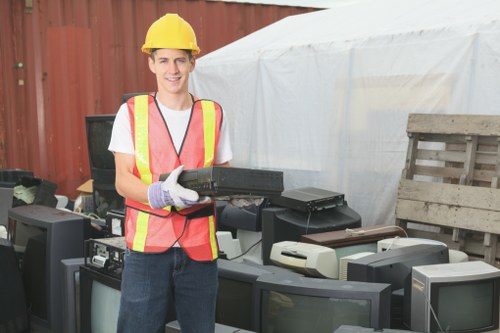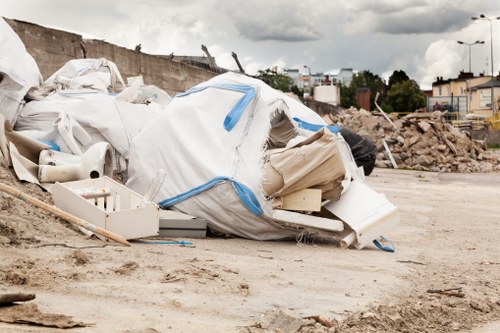Waste Recycling Reading: A Comprehensive Overview

The Importance of Waste Recycling
Waste recycling plays a crucial role in preserving our environment. By reprocessing materials, we reduce the need for raw resources, minimizing habitat destruction and conserving energy. Recycling helps lower greenhouse gas emissions, combating climate change and promoting a healthier planet for future generations.
Moreover, effective recycling programs can significantly decrease the amount of waste sent to landfills and incinerators. This not only extends the lifespan of these facilities but also reduces soil and water pollution. By diverting waste from these endpoints, we contribute to a cleaner and more sustainable environment.
Recycling also has economic benefits. It creates job opportunities in collection, processing, and manufacturing industries. Additionally, recycled materials can be sold, generating revenue and reducing the overall costs associated with waste management.

How Waste Recycling Works
The recycling process begins with the collection of recyclable materials from households, businesses, and recycling centers. These materials are then sorted based on their type, such as paper, plastic, metal, and glass. Advanced sorting technologies, including magnets, optical scanners, and manual sorting, ensure that each material is accurately categorized.
Once sorted, the materials undergo processing to transform them into usable forms. Paper is pulped and cleaned, plastics are melted and reformed, metals are melted and molded, and glass is crushed and repurposed. This processed material is then manufactured into new products, completing the recycling loop and reducing the need for virgin resources.
Effective recycling requires collaboration between individuals, communities, and industries. Public awareness and participation are essential to ensure that recyclable materials are properly separated and collected. Additionally, government policies and incentives can encourage businesses to adopt sustainable practices and invest in recycling infrastructure.

Types of Recyclable Materials
Understanding the different types of recyclable materials is key to effective waste management. **Paper** includes newspapers, magazines, office paper, and cardboard. It's vital to keep paper products clean and dry to maintain their recyclability.
**Plastics** are categorized by resin codes, typically ranging from PET (#1) to others like PVC (#3) and LDPE (#4). Not all plastics are recyclable in every community, so it's important to check local guidelines. **Metals**, including aluminum cans, steel products, and scrap metal, are highly recyclable and retain their quality indefinitely.
**Glass** recycling involves clear, green, and brown glass containers. Like metals, glass can be recycled repeatedly without loss of quality. **Electronics** such as computers, smartphones, and televisions contain valuable materials but require specialized recycling processes due to hazardous components.

Waste Recycling in Reading
Reading has implemented robust waste recycling programs to promote sustainability within the community. The city provides accessible recycling bins across residential and commercial areas, ensuring that residents can conveniently participate in recycling efforts.
Educational initiatives and public awareness campaigns are regularly conducted to inform citizens about the importance of recycling and proper sorting techniques. Workshops and informational materials help residents understand what can and cannot be recycled, enhancing the effectiveness of the program.
The local government collaborates with recycling facilities and waste management companies to ensure that collected materials are efficiently processed and repurposed. These partnerships are essential for maintaining a seamless recycling workflow and achieving the city’s environmental goals.

Nearby Areas and Their Recycling Efforts
**West Reading** is known for its comprehensive curbside recycling service, making it easy for residents to separate their waste. **Earley** has implemented a successful composting program that reduces organic waste and produces valuable fertilizer for local gardens.
**Tilehurst** focuses on electronic waste recycling, offering specialized drop-off centers for old electronics. **Peppard** has embraced recycling education in schools, fostering a culture of sustainability among young students.
**Caversham** boasts community recycling workshops that teach residents how to repurpose materials creatively. **South Reading** has partnered with local businesses to enhance recycling infrastructure and increase material recovery rates.
**Norcot** emphasizes the recycling of construction waste, promoting the reuse of building materials. **Battle** has a strong focus on plastic recycling, with numerous facilities dedicated to processing plastic waste.
**Finchampstead** integrates recycling with local environmental initiatives, supporting broader sustainability efforts. **Woodley** offers convenient recycling collection points, ensuring high participation rates among residents.
Benefits of Recycling for the Community
Recycling offers numerous benefits to the community, both environmentally and economically. It reduces the demand for raw materials, conserving natural resources and ensuring their availability for future generations.
Economically, recycling creates jobs in the collection, processing, and manufacturing sectors. It also stimulates the local economy by fostering industries that rely on recycled materials, promoting sustainable business practices.
Socially, recycling fosters a sense of community and shared responsibility. It encourages individuals to participate in environmental stewardship, strengthening community bonds and promoting a culture of sustainability.
Challenges in Waste Recycling
Despite its benefits, waste recycling faces several challenges. Contamination of recyclable materials is a significant issue, as non-recyclable items mixed with recyclables can compromise the entire recycling stream. Educating the public on proper sorting techniques is crucial to mitigate this problem.
Another challenge is the fluctuating market demand for recycled materials. Economic downturns can reduce the price and demand for recycled goods, making it less profitable for recycling operations. This volatility can lead to reduced recycling rates and increased waste.
Additionally, inadequate recycling infrastructure in some areas limits the effectiveness of recycling programs. Investments in advanced sorting technologies and efficient processing facilities are necessary to enhance the capacity and quality of recycling efforts.
How You Can Contribute
Everyone can play a part in improving waste recycling practices. Start by **reducing** the amount of waste you generate by choosing reusable products and minimizing single-use items. **Reusing** items whenever possible also helps decrease the demand for new materials.
**Properly sorting** your recyclables is essential. Familiarize yourself with local recycling guidelines and ensure that materials are clean and correctly separated. This attention to detail ensures that recyclables are processed efficiently and effectively.
Participate in local recycling programs and support community initiatives. Your active involvement can drive change and encourage others to adopt sustainable practices. Additionally, advocate for better recycling infrastructure and policies within your area.
Frequently Asked Questions
1. What materials can be recycled in Reading?
In Reading, common recyclable materials include paper, cardboard, plastics (depending on the resin code), metals, glass, and certain electronics. It's important to check local guidelines for specific items accepted.
2. How can I reduce contamination in my recycling?
To reduce contamination, ensure that recyclable items are clean and dry before placing them in recycling bins. Avoid mixing non-recyclable materials with recyclables and follow local sorting rules carefully.
3. Are there any items that cannot be recycled curbside?
Yes, items such as plastic bags, food-contaminated paper, certain types of glass, and electronics typically cannot be recycled through curbside programs. These items may require special disposal methods or drop-off at designated centers.
4. How does recycling benefit the local economy?
Recycling creates jobs in collection, processing, and manufacturing industries. It also reduces costs associated with waste management and stimulates economic growth by supporting sustainable businesses and industries.
5. What should I do with electronic waste?
Electronic waste should be taken to specialized recycling facilities or drop-off centers. These centers ensure that electronic components are properly processed and hazardous materials are safely handled.